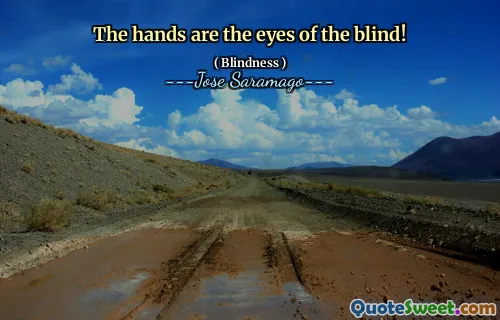"Blindness" is a powerful novel by Nobel Prize-winning author José Saramago, exploring themes of extreme social breakdown and human resilience. The story begins when an inexplicable epidemic of sudden blindness strikes a city, leading to chaos as the afflicted population is quarantined. The narrative delves into the psychological and moral collapse of society when basic structures begin to fail.
The characters in the novel, primarily referred to by their roles rather than names, highlight the anonymity of suffering and shared humanity. As the story unfolds, their relationships evolve under the pressure of their dire circumstances, revealing both the best and worst of human nature. The group of blind individuals struggles to survive amid deteriorating conditions, showcasing the fundamental instincts of survival versus the moral dilemmas that arise.
Saramago's unique writing style, characterized by long sentences and minimal punctuation, immerses readers in the disorienting experience of blindness. The narrative serves as an allegory for the societal issues of the time, reflecting on ignorance and the fragility of civilization. Ultimately, "Blindness" prompts profound questions about human nature, empathy, and the societal bonds that hold communities together in times of crisis.
More »
Today Birthdays
1970 -
Shonda Rhimes
1599 -
Edmund Spenser
1940 -
Edmund White
1957 -
Lorrie Moore
1691 -
George Fox
1961 -
Wayne Coyne
1934 -
Carolyn See
1965 -
Bill Bailey
1967 -
Masha Gessen
1937 -
George Reisman
1890 -
Elmer Davis
1978 -
Nate Silver
1884 -
Sophie Tucker
1960 -
Matthew Bourne
1980 -
Maria de Villota
1977 -
Orlando Bloom
1976 -
Michael Pena
1952 -
Geoffrey Canada
1951 -
Frank Peretti
1955 -
Trevor Rabin
1808 -
Salmon P. Chase
1947 -
Robert Martin
1927 -
Sydney Brenner
1926 -
Carolyn Gold Heilbrun
1954 -
Denise Morrison
1960 -
Eric Betzig
1968 -
Traci Bingham
1919 -
Robert Stack
1970 -
Keith Coogan
1989 -
Beau Mirchoff




